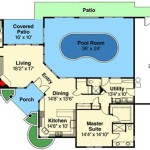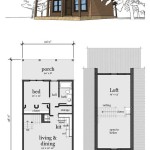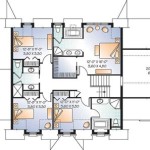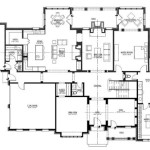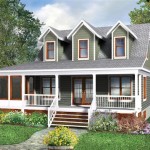Who Can Draw Up House Plans? Understanding Your Options
Embarking on a home construction or renovation project invariably necessitates the creation of accurate and detailed house plans. These plans serve as the blueprint for the entire undertaking, guiding contractors, ensuring code compliance, and ultimately shaping the final product. However, the question arises: who is qualified to draw up these crucial documents? The answer encompasses a variety of professionals, each possessing distinct skill sets, qualifications, and cost structures. Understanding these options is paramount to making an informed decision that aligns with project scope, budget, and desired level of customization.
The process of creating house plans involves more than just sketching basic layouts. It requires a comprehensive understanding of building codes, structural engineering principles, spatial planning, and often, aesthetic considerations. Different professionals bring different levels of expertise in these areas, impacting the overall quality and suitability of the final plan. Factors such as project complexity, local regulations, and personal preferences should all be weighed when selecting the right individual or firm to draft house plans.
Architects: Comprehensive Design and Project Oversight
Architects are highly trained and licensed professionals equipped to handle all aspects of building design, from conceptualization to construction administration. Their education typically involves a multi-year university program culminating in a professional degree, followed by a rigorous internship and licensing exam. This extensive training equips them with a deep understanding of spatial design, structural integrity, building systems, and regulatory compliance. Architects excel at creating innovative and aesthetically pleasing designs while ensuring the building meets the client's functional needs and budgetary constraints.
Architects are particularly well-suited for complex projects, custom homes, or renovations that require significant structural modifications. They can provide comprehensive services, including schematic design, design development, construction documents, and construction administration. Schematic design involves preliminary sketches and conceptual layouts to explore different design options. Design development refines the chosen concept, incorporating specific materials, finishes, and system designs. Construction documents are the detailed blueprints used by contractors for building the project, including structural drawings, electrical plans, plumbing layouts, and specifications.
Construction administration involves the architect overseeing the construction process to ensure the project is built according to the plans and specifications. This may include site visits, answering contractor questions, reviewing shop drawings, and approving payment applications. While architects typically command higher fees compared to other options, their comprehensive services and expertise can be invaluable for ensuring a successful and high-quality project outcome. They can also help navigate complex permitting processes and act as advocates for the client throughout the construction phase.
Selecting an architect involves careful consideration of their portfolio, experience, and communication style. It is essential to find an architect whose design aesthetic aligns with the client's preferences and who possesses a proven track record of successful projects. A clear and open line of communication is crucial for ensuring the architect understands the client's needs and expectations, and for resolving any issues that may arise during the design or construction process.
Residential Designers: Focused on Home Design and Functionality
Residential designers, also sometimes referred to as building designers, specialize in the design of residential structures. Unlike architects, they may not hold a formal architecture degree or license, but they possess significant experience and expertise in residential design principles, building codes, and construction practices. The scope of practice for residential designers can vary depending on local regulations, with some jurisdictions requiring registration or certification. Their expertise lies primarily in the practical aspects of home design, focusing on functionality, space planning, and cost-effectiveness.
Residential designers typically work closely with clients to understand their lifestyle, needs, and budget, translating these requirements into detailed house plans. They are proficient in creating floor plans, elevations, and construction details necessary for obtaining building permits and guiding construction. While they may not provide the same level of aesthetic innovation as architects, residential designers are often more cost-effective for standard home designs and renovations. They excel at optimizing space, improving functionality, and ensuring the home meets the client's practical needs.
Residential designers often focus on stock plans, which are pre-designed house plans that can be modified to suit specific site conditions and client preferences. This can be a cost-effective option for homeowners who are looking for a readily available design that can be customized to their liking. However, it is important to ensure that the stock plan meets local building codes and zoning regulations before proceeding with construction. A residential designer can help adapt the plan to comply with these requirements.
Furthermore, some residential designers may have specialized knowledge in specific areas, such as sustainable design, universal design, or aging-in-place design. This expertise can be invaluable for clients who are looking to build or renovate a home that is environmentally friendly, accessible, or designed to accommodate the needs of elderly or disabled individuals. When selecting a residential designer, it is important to inquire about their experience and expertise in the specific area of interest.
Draftspersons: Technical Expertise in Plan Production
Draftspersons are skilled technicians who specialize in creating technical drawings and blueprints based on designs provided by architects, engineers, or residential designers. They possess a strong understanding of CAD (computer-aided design) software and drafting conventions, enabling them to translate design concepts into detailed and accurate construction documents. Draftspersons typically do not conceptualize designs or provide design advice; instead, they focus on the technical aspects of plan production.
Draftspersons are often employed by architectural firms, engineering firms, or construction companies. They play a crucial role in ensuring that the construction documents are accurate, complete, and compliant with relevant building codes and standards. Their expertise lies in producing high-quality drawings that can be used by contractors to build the project according to the intended design. While they may not possess the same level of design expertise as architects or residential designers, draftspersons are essential for translating design concepts into constructible plans.
Hiring a draftsperson independently can be a cost-effective option for simple projects or when you already have a clear design concept in mind. For example, if you have a detailed sketch or a basic floor plan that you want to formalize into construction documents, a draftsperson can provide the necessary technical expertise to create accurate and professional-looking plans. However, it is important to ensure that the draftsperson has a thorough understanding of local building codes and zoning regulations, or to work with a consultant who can provide this expertise.
In addition, when working with a draftsperson, it is crucial to provide clear and detailed instructions, as well as accurate measurements and specifications. Any ambiguities or inconsistencies in the design can lead to errors in the construction documents, which can result in costly delays and rework during the construction process. Therefore, it is important to review the draftsperson's work carefully and to provide feedback on any necessary revisions or corrections.
Engineers: Structural and Mechanical Expertise
While not typically involved in the overall design of a house, structural engineers, mechanical engineers, and electrical engineers play a critical role in ensuring the safety and functionality of the building. Structural engineers are responsible for designing the structural components of the building, such as the foundation, walls, and roof, to ensure they can withstand the loads and stresses imposed upon them. Mechanical engineers design the heating, ventilation, and air conditioning (HVAC) systems, as well as the plumbing systems, to ensure the building is comfortable and efficient. Electrical engineers design the electrical systems, including the wiring, lighting, and power distribution, to ensure the building is safe and functional.
Engineers are typically required for projects involving significant structural modifications, complex mechanical systems, or specialized electrical installations. For example, if you are planning to remove load-bearing walls, add a second story to your home, or install a solar panel system, you will likely need to consult with a structural engineer, a mechanical engineer, or an electrical engineer, respectively. These professionals will ensure that the design is safe, code-compliant, and structurally sound.
In some cases, architects or residential designers may have in-house engineers or collaborate with external engineering firms to provide these specialized services. However, it is important to ensure that the engineers are licensed and experienced in the specific type of project you are undertaking. They should also be familiar with local building codes and regulations. Engaging qualified engineers is essential for ensuring the long-term safety and performance of your home.
Moreover, engineers can provide valuable insights and recommendations on how to optimize the design for energy efficiency and sustainability. For example, a mechanical engineer can help select energy-efficient HVAC equipment and design a ventilation system that minimizes energy consumption. An electrical engineer can help design a lighting system that reduces energy use and maximizes natural light. By incorporating these considerations into the design process, it is possible to create a home that is not only comfortable and functional but also environmentally responsible.
Cost Considerations and Making the Right Choice
The cost of house plans varies considerably depending on the professional involved, the complexity of the project, and the scope of services provided. Architects typically charge higher fees due to their comprehensive services and expertise, while draftspersons are generally the most cost-effective option for simple projects. Residential designers fall somewhere in between. Obtaining multiple quotes from different professionals is crucial for comparing prices and understanding the scope of services included in each quote. It is important to consider not only the upfront cost but also the potential long-term benefits of engaging a more experienced and qualified professional.
Selecting the right professional for drawing up house plans requires careful consideration of several factors. The complexity of the project, budget constraints, desired level of customization, and personal preferences all play a role in the decision-making process. For complex projects or custom homes, an architect may be the best choice due to their comprehensive design expertise and project oversight capabilities. For standard home designs and renovations, a residential designer can provide a cost-effective solution while ensuring the home meets the client's practical needs. For simple projects or when you already have a clear design concept in mind, a draftsperson can provide the necessary technical expertise to create accurate and professional-looking plans.
Regardless of the professional chosen, it is essential to establish clear communication channels and to provide detailed information about your needs, expectations, and budget. This will help ensure that the house plans accurately reflect your vision and meet your requirements. Furthermore, it is important to review the plans carefully and to provide feedback on any necessary revisions or corrections. By working collaboratively with the chosen professional, you can ensure that the final house plans are accurate, complete, and ready for construction.

Floor Plan Creator And Designer Free Easy App

House Plans How To Design Your Home Plan

House Plans How To Design Your Home Plan

Home Design Your House

Small House Plans Popular Designs Layouts

House Plans How To Design Your Home Plan

House Plans How To Design Your Home Plan

Home Design Your House

20 Best Floor Plan Apps To Create Your Plans Foyr

Small House Plans Popular Designs Layouts


